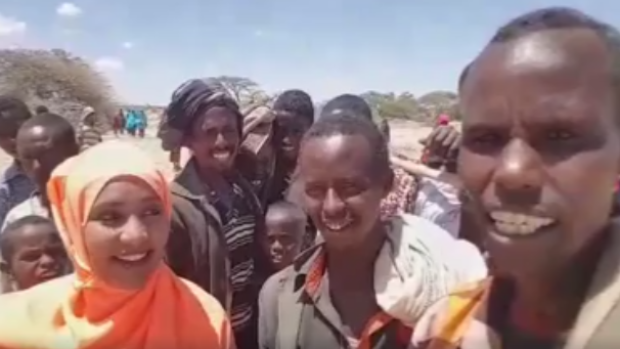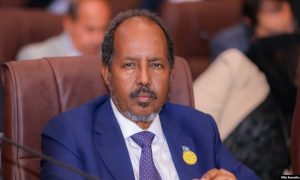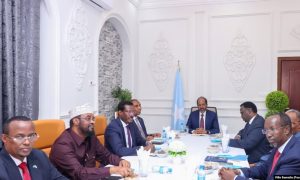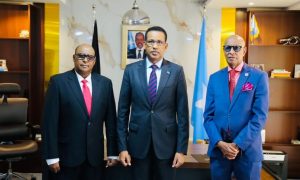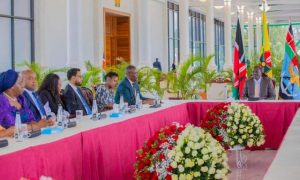
Hodan Nalayeh, founder of Integration TV, went to Somalia to see how drought is affecting people
By Muriel Draaisma | CBC News | March 28, 2017 – A Toronto-area host of a weekly television talk show for Somali viewers says people in Somalia are showing resilience despite severe drought.
Hodan Nalayeh, founder and host of Integration TV on OMNI TV, travelled to remote areas in Somalia for about 10 days earlier this month to see how the drought is affecting people there and to raise awareness of the situation.
The conditions are horrific,” Nalayeh told Metro Morning on Tuesday.
“People basically have not seen rain for the past two years. The results have basically showed up now where it’s near famine conditions. Somalis are basically starving from just their land and lack of food and lack of water. A lot of them have lost their livestock.”

Nalayeh, a resident of Vaughan, Ont. and a mother of two, said her video stories, posted to Integration TV’s Facebook page, focused on Somali nomads, who she said represent “authentic Somali culture.”
The nomads, who used to sell their livestock — including camels and goats — to survive, cannot resell any food to feed their families and cannot get water for themselves, she said.
In one video, she interviews a mother who lost her four-year-old child to measles after water in the area became contaminated.
The mother, also a nomad, was “so grateful” to be alive and that her other children were still alive, she said.
“Despite the harsh conditions they’re in and the weather they’re facing, they’re still such faithful people. Life goes on,” she said.
Nalayeh said their resilience comes having faith, living off the environment, expecting hardship but enduring it, she said.
“They know that suffering is a part of life but tomorrow is a new day,” she said.

According to the United Nations, about six million Somalis are in need of humanitarian assistance and three million are in need of urgent life-saving measures. An international appeal is underway to raise funds for Somalia and other nations suffering drought.
For its part, the Canadian government recently pledged to provide $119.25 million for four drought-ravaged Middle Eastern and African countries, including $21 million specifically for Somalia.
Two years ago, Nalayeh became interested in discovering Somalia, learning about her past and returning to the small town there where she was born.
“I just fell in love with the culture, the people, the way they think, and the way of life,” she said. “It’s a lot different than what the media portrays.”
Suffering not the whole story
Through her TV show, which is also broadcast on YouTube, Nalayeh said she is trying to change the image of Somalis around the world.
“It’s a beautiful country. The nature in that county is just amazing. Because of the conflict, people have forgotten that nation,” she said.
“I always say that stories have two sides. Western media tends to focus on the suffering of that nation, and the problems and the bombings, but people are still living,” she said.
“If we share the human stories, then Somalia will become more than a hashtag.”
She said people in Somalia should not be lacking basic resources such as water and food given the wealth of the world.
In a news release, Global Affairs Canada said: “Several seasons of severe drought have led to increased food insecurity and the very real threat that the country could slide into famine in 2017. Overall, roughly one-half of the population, more than 6 million people, including more than 1 million internally displaced persons, require humanitarian assistance.”
With files from Metro Morning
.
.
____________________________
_____________________________________________________________________________________
Xafiiska Wararka Qaranimo Online | Mogadishu, Somalia
_____________________________________________________________________________________Advertisement
_____________________________________________________________________________________


